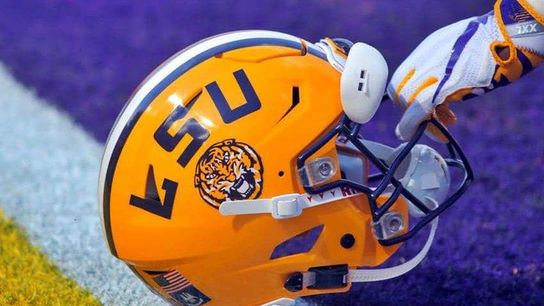Everyone in college athletics is on the hunt for new revenue streams, especially if and when House settlements are approved. Neil Reiser believes he's located not just a revenue stream, but a river of new money for the state's public, football-playing Division I schools: tax dollars.
Reiser, a Republican state representative, has authored House Bill 639, which would more than double Louisiana's tax on sports gambling, with much of that new money earmarked for college athletics.
As the Louisiana Illuminator details HB639 would take the Louisiana's sports gambling tax from 15 percent to 32.5 percent, in line with the tax on the state's video poker machines. Of that 32.5 percent, 25 percent would go to college athletics.
Presently, a 15 percent tax raises $54 million per year. If the gambling rate stays the same, Louisiana would now make $116 million a year. A quarter of $116 million is $29 million.
“The need is so high,” Riser told the Illuminator. “When you start talking about the SEC, talking about any level of athletics right now, it’s changed so dramatically. Even like ULM … just to be competitive [in recruiting], it takes facilities, when you’re dealing with [athletes] they require you to have all those things."
If the 25 percent cut feels like a lot, it is. Currently, 25 percent of the 15 percent tax rate on sports gambling goes toward early childhood education ($13.5 million per year), 10 percent to local governments, 3 percent to gambling addiction programs and the rest to other programs within the state government.
Raising the tax to pay college athletes begs the obvious question: Couldn't the state raise the tax rate and... not pay college athletes? The Illuminator writes: (D)edicating state money to college athletics might be a hard sell at a time when lawmakers are digging into couch cushions to find the change necessary to prevent a K-12 teacher pay cut.
It remains to be seen how the state's 10 public, football-playing Division I schools would split a hypothetical $29 million windfall, but given that the bill's author mentioned the SEC first in his quote, it feels safe to assume LSU would take the tiger's share of money.
Elsewhere, two bills have been drafted that would exempt either some or all NIL money made by Louisiana athletes from state taxes. Similar efforts have gotten off the ground in other states, and all have met swift resistance. From the Illuminator:
The most notable proposal is House Bill 166 by Rep. Dixon McMakin, R-Baton Rouge, which would exempt the entirety of athletes’ NIL income from the state taxes. McMakin, an LSU alum whose father played baseball for the Tigers in the 1970s, said he proposed the legislation because LSU is competing for athletes against states like Texas that don’t have a state income tax.
Again, the attempt to funnel money to college athletes begs an obvious question: Why not exempt state taxes for employees in any industry that competes with states like Texas?
Finally, lawmakers authored one bill that would prevent Louisiana athletics departments from giving more than 25 percent of their scholarships and financial assistants to foreign students, and another bill that would prevent the SEC from scheduling LSU home games to begin before 6 p.m. in September. Louisiana Tech, Tulane, ULM, etc., home games would still be free to start in the middle of the afternoon, though.
